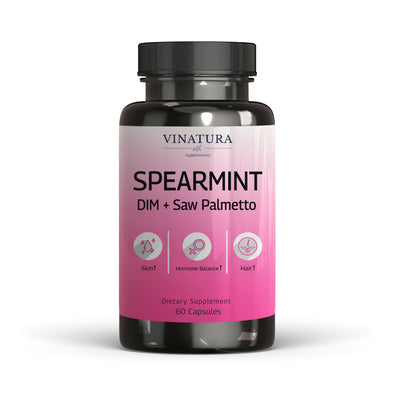
Milk Thistle For Lactation: Does It Increase Breast Milk?
Increasing breast milk supply is the top concern of most postpartum and breastfeeding mothers. One of the most widely used ways is to use natural herbs. Milk thistle has been used for thousands of years to support various diseases, especially those related to liver health. So what about Milk Thistle For Lactation? Does it increase breast milk supply? The following article will provide objective views based on scientific viewpoints.
Before exploring further, please read the disclaimer located at the end of this webpage.
Key Takeaways
- The main active ingredients in milk thistle extract are Silybin (Silibinin), silychrisitn, and Silydianin, commonly called Silymarin.
- Silymarin contributes to the production of the milk-producing hormone prolactin. Therefore, milk thistle is effective in enhancing breast milk production.
- Milk thistle is safe for most pregnant or breastfeeding mothers when taken in recommended doses.
- Note that you should talk to a specialist before using any herbs or supplements while breastfeeding.
What Is Milk Thistle?

Milk thistle has the scientific name Silybum marianum (L) Gaertn, also known as Mother Mary's Tree, holy thistle or prickly chrysanthemum, etc. This is a wild plant originating from the Mediterranean. Currently, milk thistle is found in most countries in Central Europe, North America, China, India, and other places.
Extracted from milk thistle seeds contains about 4-6% Silymarin, which helps support diseases related to the liver, bones and joints, diabetes,... [1]
Milk thistle is believed to increase lactation in breastfeeding women because it stimulates the production of prolactin, a hormone that attaches to receptors on mammary gland cells, stimulating these cells to produce milk [2].
Does Milk Thistle Increase Breast Milk?
Milk thistle is said to promote breast milk production in nursing mothers. Their mechanism of action is to increase the ability to produce the hormone prolactin to create breast milk.
Based on research by Francesco Di Pierro and Associates on the clinical efficacy, safety, and tolerability of Silymarin published in 2008, it was found that mothers who took 420 mg of Silymarin for 63 days produced 64% more milk compared to mothers using a placebo [2].
This study also confirms that Silymarin can be considered a safe and effective herbal product that can be taken orally to improve daily milk production in postpartum women without affecting milk production quality.
Milk Thistle for Lactation: What's Science Say?

Although studies on the effects of milk thistle in breastfeeding and testing whether milk thistle helps increase breast milk is still limited. However, studies have shown that milk thistle can help increase milk production in breastfeeding women.
Also, the study by Francesco Di Pierro and colleagues conducted on 50 healthy women during lactation using Silymarin orally at a dosage of 420 mg/day compared to a placebo product was indistinguishable [2].
The results showed that women using Silymarin increased their daily milk production by 85.94%. Meanwhile, in the placebo group, the increase in milk production stopped at only 32.09%.
In particular, there were no side effects in either group of subjects. This demonstrates that Silymarin is very well tolerated by breastfeeding mothers.
In addition, a study published in the National Library of Medicine in 2016 was also conducted on 70 breastfeeding women. The results showed that using 420mg of milk thistle extract daily for 28 days increased milk production by an average of 21% compared to the control group. [3]
Potential Benefits Of Milk Thistle For Lactation
May Help Increase Milk Supply
As analyzed above, the active ingredient Silymarin found in milk thistle seed extract is believed to help increase milk supply in breastfeeding mothers.
Adding more evidence to this, a study by Bassim I Mohammad and colleagues published in the Egyptian Journal of Veterinary Sciences in 2019 also concluded that milk thistle seed extract leads to clear hyperplasia. In mammary tissue with a solid expression of the prolactin entity, performed in Wister raisins.[4]
May Support Liver Health
The most researched benefit of milk thistle is its support of liver health. Specifically, milk thistle is often used as a complementary therapy by people with liver damage and nonalcoholic fatty liver disease, hepatitis, and liver cancer.
Research on the regulatory effects of silibinin against liver disorders and cancer conducted by Navaneethakrishnan Polachi and colleagues published in the European Journal Of Medicinal Chemistry published in 2016 has shown improvements in liver function in subjects. With liver disease, we have used milk thistle as a complementary therapy and have shown it can help reduce hepatitis and liver damage [5].
May Reduce Inflammation
Silymarin has been shown to reduce inflammation in the liver. Inflammation can affect the ability of breastfeeding mothers to produce milk. Because milk thistle seed extract has anti-inflammatory properties, it can help improve breast milk supply [6].
Is Milk Thistle Safe for Nursing Mothers?
Milk thistle and thistle extract are inherently benign and safe for most breastfeeding mothers when used in recommended doses. Initially, it has been used for thousands of years. However, as with any other herb or supplement, it's best to talk to your doctor before using milk thistle. Especially if you are sick or taking any other medication.
Side Effects Of Milk Thistle
In general, milk thistle is safe for pregnant and breastfeeding mothers. Milk thistle is usually well tolerated, but some side effects may occur at a mild level, such as diarrhea, headache, nausea, loss of appetite, etc. Contact your doctor or health care facility immediately. Seek medical attention if these symptoms become severe.
Milk Thistle Interaction
Milk thistle may interact with certain medications, such as hypoglycemic drugs and birth control pills. Therefore, be cautious when using milk thistle if you use other medicines.
How Much Milk Thistle And How To Use It To Increase Milk Supply Safely?

There is no standard recommended dosage for Milk Thistle For Lactation in breastfeeding mothers. However, the safe dosage for milk thistle is between 50 and less than 500 mg daily [7].
Milk Thistle Tea Homemade
Homemade milk thistle tea can be made using dried milk thistle seeds. To make milk thistle tea, steep a tablespoon of dried milk thistle seeds in hot water for 10-15 minutes. Strain and enjoy up to 3 cups per day.
Taking Milk Thistle Supplements
Milk thistle extracts as dietary supplements are commonly found in capsule, tablet, or liquid extract form. Each form of milk thistle supplement has a specific amount of Silymarin. It is essential to choose a high-quality product from a reputable brand.
Incorporate Milk Thistle Into Food
To support breast milk production, you can add dried and crushed milk thistle seeds to smoothies, oatmeal, cereals, or drinks.
Other Herbs For Increasing Milk Supply

In addition to milk thistle, several other herbs may help increase breast milk supply, including:
Polyscias fruticosa leaves have sedative, anti-inflammatory effects, brain circulation, and deep sleep, assisting mothers to quickly recover after giving birth.
Dandelion: One of the main effects of dandelion is to improve clogged milk ducts and breast swelling. Because they contain sodium, calcium, magnesium, and iron, they help promote milk production and clear lactose.
Gotu kola: has heat-clearing, moisturizing, diuretic, liver-laxing, and detoxifying effects that are extremely good for pregnant mothers.
Conclusion
Milk thistle is an herb used for centuries to support liver health and promote lactation in breastfeeding mothers. If you are considering using milk thistle to increase your breast milk supply, talk to your doctor about the specific dosage to ensure safety for you and your baby.
References
- [1] Rainone, F. (2005). Milk Thistle. American Family Physician, 72(7), 1285–1292. https://www.aafp.org/pubs/afp/issues/2005/1001/p1285.html
- [2] Di Pierro, F., Callegari, A., Carotenuto, D., & Tapia, M. M. (2008). Clinical efficacy, safety and tolerability of BIO-C (micronized Silymarin) as a galactagogue. Acta Bio-Medica: Atenei Parmensis, 79(3), 205–210. https://pubmed.ncbi.nlm.nih.gov/19260380/
- [3] Milk Thistle. (2006). PubMed; National Library of Medicine (US). https://www.ncbi.nlm.nih.gov/books/NBK501771/
- [4] Mohammad, B., Alzamely, H., Al Gharrawi, F., & Al-Aubaidy, H. (2019). Milk Thistle Seed Extract Favorably Affects Lactation and Development of Mammary Gland in Female Rats. Egyptian Journal of Veterinary Sciences, 50(1), 27–36. https://doi.org/10.21608/ejvs.2018.6754.1058
- [5] Polachi, N., Bai, G., Li, T., Chu, Y., Wang, X., Li, S., Gu, N., Wu, J., Li, W., Zhang, Y., Zhou, S., Sun, H., & Liu, C. (2016). Modulatory effects of silibinin in various cell signaling pathways against liver disorders and cancer – A comprehensive review. European Journal of Medicinal Chemistry, 123, 577–595. https://doi.org/10.1016/j.ejmech.2016.07.070
- [6] ABENAVOLI L. (2024). Scientific Information Database. www.sid.ir. https://www.sid.ir/paper/306371/en
- [7] Soleimani V, Delghandi PS, Moallem SA, Karimi G. Safety and toxicity of silymarin, the major constituent of milk thistle extract: An updated review. Phytother Res. 2019;33(6):1627-1638. doi:10.1002/ptr.6361
Author

Product Disclaimer
The dietary supplement products mentioned on this website are formulated based on scientific research and adhere to FDA guidelines for dietary supplements. However, the content of the articles has not been evaluated by the Food and Drug Administration (FDA) and is not intended to promote or endorse any specific product. Any products sold on this website are not intended to diagnose, treat, cure, or prevent any disease.
Opinions and Endorsements
Any claims, statements, or opinions expressed in the articles are those of the author(s) and do not necessarily reflect the views or opinions of the manufacturers of the dietary supplement products. The products sold on this website are separate from the content of the articles and are not directly endorsed or associated with the information presented here.
Liability Disclaimer
The author(s) of the articles, website, and manufacturers of the dietary supplement products do not assume any liability for any potential consequences arising from the use of the information provided in the articles. It is recommended that individuals consult with a qualified healthcare professional before making any dietary or lifestyle changes, including the use of dietary supplements.
Product Usage
Please refer to the product labels and packaging for specific usage instructions and guidelines for the dietary supplement products sold on this website.
Customer Support
For any concerns or questions regarding the dietary supplement products, please contact our customer support team, who will be more than happy to assist you.





Leave a Comment
Be the first to comment.
What do you think?